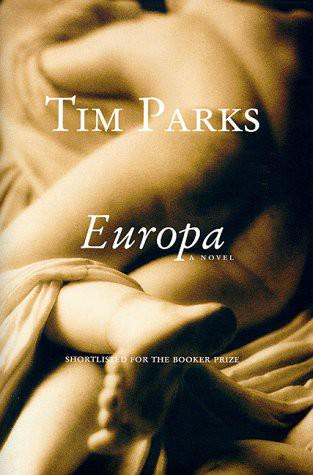
Preview Europa
A finalist for the Booker Prize, this ferociously comic tale of love gone sour is the finest novel to date from the author of the national bestsellers, "An Italian Education" and "Italian Neighbors".
Amazon.com ReviewJerry Marlow is on a coach hurtling from Milan to Strasbourg, even though he loathes coaches and everything they stand for:
...all the contemporary pieties of getting people together and moving them off in one direction or another to have fun together, or to edify themselves, or to show solidarity to some underprivileged minority and everybody, as I said, being of the same mind and of one intent, every individual possessed by the spirit of the group, which is the very spirit apparently of humanity, and indeed that of Europe, come to think of it, which this group is now hurtling off to appeal.
Jerry, suffice to say, is not a team player--not even when it comes to saving his own job. Together with a group of colleagues and students from the University of Milan, he's off to the European Parliament to protest new Italian laws against hiring foreigners--a cause which he opposes, appealing to an institution he's not sure should exist.
So why is Jerry on the coach in the first place? Because she is there--the same she for whom Jerry left his wife and daughter and who has since broken his heart. The unnamed she in question is a beautiful French woman (of course), a hellcat in bed (it goes without saying), and an intellect of notable refinement (naturellement). She was also unfaithful, and now they scarcely speak to one another. The rest of this dark and often savagely funny novel (shortlisted for the 1997 Booker Prize) consists of one great Joycean rant, a stream-of-consciousness harangue that circles obsessively around sex, the treachery of she, and Jerry's boundless misanthropy. In between we get glimpses of the bus and its motley cast of characters, including, most vividly, Vikram Griffiths, part Welsh, part Indian, with his nervous tics and his self-consciously Welsh accent and his shaggy mutt, Dafydd. As one might deduce from the title, the dream of the new, unified Europe looms behind this tale like--well, like a big, unwieldy metaphor, given expression in the form of Jerry's affair. As a meditation on the continent's future, the novel works surprisingly well, and though it initially takes some time to sort out the looping rhythms of Parks's prose, the reader's patience is repaid in spades. --Mary Park
From Publishers WeeklyThis darkly comic and inherently tragic novel by the versatile Parks (Tongues of Flame; Italian Neighbors) charts the emotional disintegration of a 45-year-old man mourning the end of an affair. In narrator Jeremiah Marlowe, Parks embodies the man of intellect in helpless thrall to his emotions. We meet Jerry on a bus traveling with a polyglot load of colleagues and nubile female students from the Milan university where he teaches to Strasbourg, where they will present a petition to the European Parliament protesting the Italian government's decision to limit the salaries and tenure of foreign professors. Although he doesn't care about his dead-end job, Jerry has come along because she will be there. His former mistress, never identified by name, is a Frenchwoman who casually betrayed Jerry after he had left his wife and teenage daughter for her. Jerry's pain, jealousy and sense of futility rise to the point of frenzy as he obsesses about his ex-mistress's cool repudiation of what he felt was the most meaningful relationship of his life. His headlong interior monologue, frantic with self-loathing and despair, is, for all its rambling rush, tightly controlled. While the book is essentially farcical, it is also profoundly sad to witness a man at the end of his tether willfully subjecting himself to the proximity of the woman who is the source of his anguish. Moreover, Jerry's agitated thoughts encapsule a brilliant meditation about the shallowness of popular culture at the end of the 20th century, made more vivid to Jerry by the bon mots of classical literature that spring to his mind at every turn of events. He mockingly compares the myths of a united Europe and of a perfect love against the realities of self-involved nations and individuals. One aspect of the dramatic denouement seems too pat, but Parks caps it with a fitting ending. Though being trapped in the head of a feverishly loquacious narrator may not be everybody's ideal of a bookish voyage, Parks's portrayal of a cerebral mind preyed upon by unbearable emotions makes a compelling story. (Oct.) FYI: Europa was shortlisted for the 1997 Booker Prize.
Copyright 1998 Reed Business Information, Inc.
